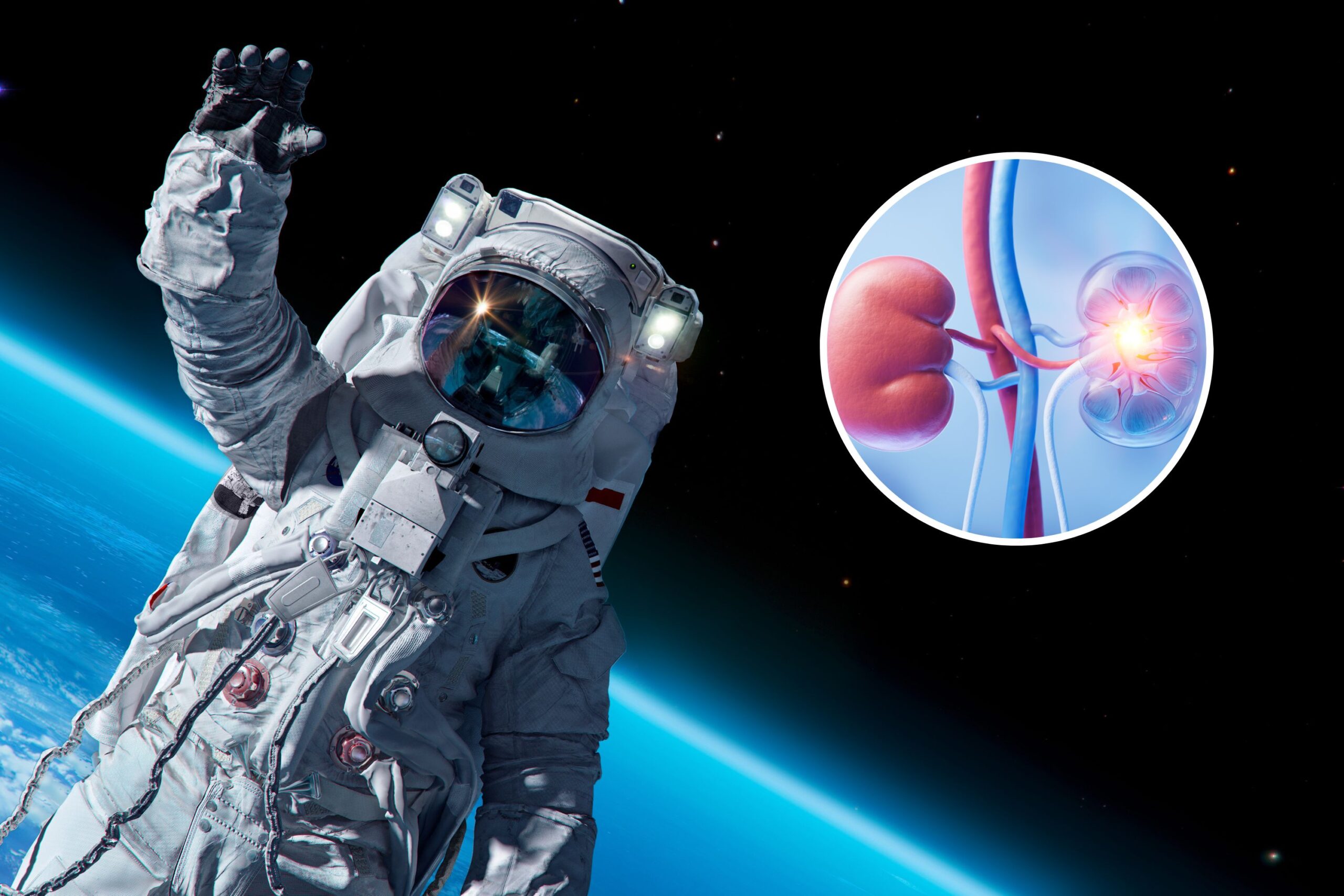Astronauts on a future mission to Mars may not make it all the way to the Red Planet and back without experiencing kidney failure, new research shows.
Although not usually considered one of the biggest dangers of space travel, traveling as far as Mars could change the structure and function of astronauts’ kidneys, leading to permanent damage, according to a new paper in the journal Nature Communications.
This damage would be the result of cosmic rays from the rest of the Milky Way – known as Galactic Cosmic Radiation (GCR) – which are high-energy particles that are usually absorbed by the Earth’s magnetic field, protecting us on the ground and astronauts are partially shielded. low Earth orbit.
ISTOCK / GETTY IMAGES PLUS
However, during the long two-year round trip to Mars and back, an astronaut would be exposed to a large amount of GCR, damaging his organs and DNA.
“If we don’t develop new ways to protect the kidneys, I would say that while an astronaut could get to Mars, he might need dialysis on the way back. We know that it’s too late for the kidneys to show signs of radiation damage “By the time this becomes clear, it will likely be too late to prevent failure, which would be catastrophic for the mission’s chances of success,” said co-author Keith Siew, a researcher in the Division of Renal Medicine from University College London (UCL).
We’ve long known that space travel can lead to numerous health problems for astronauts, ranging from loss of bone mass to the development of kidney stones, but only a tiny fraction of astronauts – those who traveled to the moon – have been exposed to the full force of the Moon. GCR, and this was for less than two weeks. This means that until now we haven’t really had an idea of the impact GCR will have on the human body.
In the paper, the researchers describe how they analyzed human and mouse samples from more than 40 low-Earth missions, and experimentally tested the effects of an equivalent dose of GCR on Mars on mice and rats.
They found that the kidneys of both mice and humans are ‘remodeled’ by space conditions, causing changes in the way the kidneys process salts and an increased risk of kidney stones. However, these could be due to the effects of microgravity, or perhaps a combination of GCR and microgravity.
The researchers also found that the kidneys of mice exposed to conditions equivalent to a two-and-a-half year trip to Mars were permanently damaged.
“We know what has happened to astronauts during the relatively short space missions conducted so far, in terms of an increase in health problems such as kidney stones. What we don’t know is why these problems occur, nor what will happen to astronauts on longer flights, such as the proposed mission to Mars,” Siew said.
The researchers emphasize that this issue must be seriously considered before sending astronauts to Mars.
“Our study highlights the fact that if you’re planning a space mission, the kidneys really matter. You can’t protect them from galactic radiation through shielding, but as we learn more about kidney biology, it may be possible to use technological or develop pharmaceutical measures.” to enable longer space travel,” study author Stephen B. Walsh, professor at UCL’s Department of Renal Medicine, said in the statement.
“Any drugs developed for astronauts could also be useful here on Earth; for example, by enabling the kidneys of cancer patients to tolerate higher doses of radiotherapy, with the kidneys being one of the limiting factors in this regard.”
Do you have a tip about a scientific story that Newsweek should cover? Do you have a question about Mars? Let us know at science@newsweek.com.
Unusual knowledge
Newsweek is committed to challenging conventional wisdom and finding connections in the search for common ground.
Newsweek is committed to challenging conventional wisdom and finding connections in the search for common ground.
